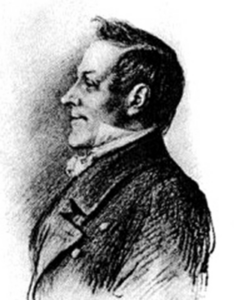Liane
(Poet's title: Liane)
Set by Schubert:
D 298
[October 1815]
»Hast du Lianen nicht gesehen?«
»Ich sah sie zu dem Teiche gehn.«
Durch Busch und Hecken rennt er fort
Und kommt an ihren Lieblingsort.
Die Linde spannt ihr grünes Netz,
Aus Rosen tönt des Bachs Geschwätz,
Die Blätter rötet Sonnengold,
Und Alles ist der Freude hold.
Liane fährt auf einem Kahn,
Vertraute Schwäne nebenan,
Sie spielt die Laute, singt ein Lied,
Wie Liebe in ihr selig blüht.
Das Schifflein schwanket wie es will;
Sie senkt das Haupt und denket still
Nur ihn, der im Gebüsche ist,
Sie bald in seine Arme schließt.
“You haven’t seen Liane, have you?”
“I saw her going to the pond.”
He runs off through the bushes and hedgerows
And comes to her favourite place.
The lime tree stretches out its green net,
The brook’s prattling sounds out from amongst the roses,
The gold of the sun makes the leaves red,
And everything becomes beauteous with joy.
Liane is riding on a boat,
With faithful swans at the side.
She is playing a lute, singing a song
About how love is blossoming in her, making her happy.
The little ship sways as it goes its own way,
She lowers her head and quietly thinks
About him, just him, he who is in the bushes
And who will soon fold her in his arms.
All translations into English that appear on this website, unless otherwise stated, are by Malcolm Wren. You are free to use them on condition that you acknowledge Malcolm Wren as the translator and schubertsong.uk as the source. Unless otherwise stated, the comments and essays that appear after the texts and translations are by Malcolm Wren and are © Copyright.
☙
Themes and images in this text:
Arms and embracing Boats Bushes and undergrowth Flowers Gold Green Heads Hedges Joy Leaves and foliage Lime trees (Lindenbaum) Lorelei, water nymphs, mermaids etc Lutes On the water – rowing and sailing Ponds Red and purple Rivers (Bach) Roses and pink Songs (general) The sun Swans Swaying and swinging
Graham Johnson points out that Liane is a character in the novel Titan by Jean-Paul (published in four parts, 1800 – 1803), which Mayrhofer (who was prodigiously well-read) must have known. The main character Albano is attracted to the unattainable Liane, who is blind and a sort of seer (she knows that she is going to die young and that Albano will find a more fulfilling love after her death).
Mayrhofer presents Liane as an alluring, waif-like figure in the tradition of La Belle Dame Sans Merci or Mélisande, but her appearance on a boat also reminds us of figures like the Lady of Shalott. The fact that she sings on water also makes her a sort of Undine or Rusalka. Although she gives every impression of being in love and looking forward to being taken up into the arms of a heroic lover, we have to suspect that this might not be all that is going on. We may be reading the man’s fantasy about how he is going to be received rather than her own inner thoughts. Wrapping these watery waifs in their arms never turns out well for men in stories like this.
There are hints throughout the text that, despite the surface impression that the story is being told by an omniscient narrator, everything is being presented from the man’s point of view. Although direct speech is used (in stanza one), we never hear Liane’s voice itself. The second stanza emphasises colours, which the blind Liane could not have been aware of (green, red, gold). She cannot know that he is already in the bushes watching her and listening to her. We are following HIS train of thoughts all the way through. “You haven’t seen Liane, have you?”
☙
Original Spelling Liane »Hast du Lianen nicht geseh'n?« »Ich sah sie zu dem Teiche geh'n.« Durch Busch und Hecken rennt er fort, Und kommt an ihren Lieblingsort. Die Linde spannt ihr grünes Netz, Aus Rosen tönt des Bachs Geschwätz; Die Blätter röthet Sonnengold, Und Alles ist der Freude hold. Liane fährt auf einem Kahn, Vertraute Schwäne nebenan. Sie spielt die Laute, singt ein Lied, Wie Liebe in ihr selig blüht. Das Schifflein schwanket, wie es will. Sie senkt das Haupt, und denket still Nur ihn - der im Gebüsche ist, Sie bald in seine Arme schließt.
Confirmed by Peter Rastl with Gedichte von Johann Mayrhofer. Wien. Bey Friedrich Volke. 1824, page 10.
To see an early edition of the text, go to page 10 [24 von 212] here: http://digital.onb.ac.at/OnbViewer/viewer.faces?doc=ABO_%2BZ177450902


